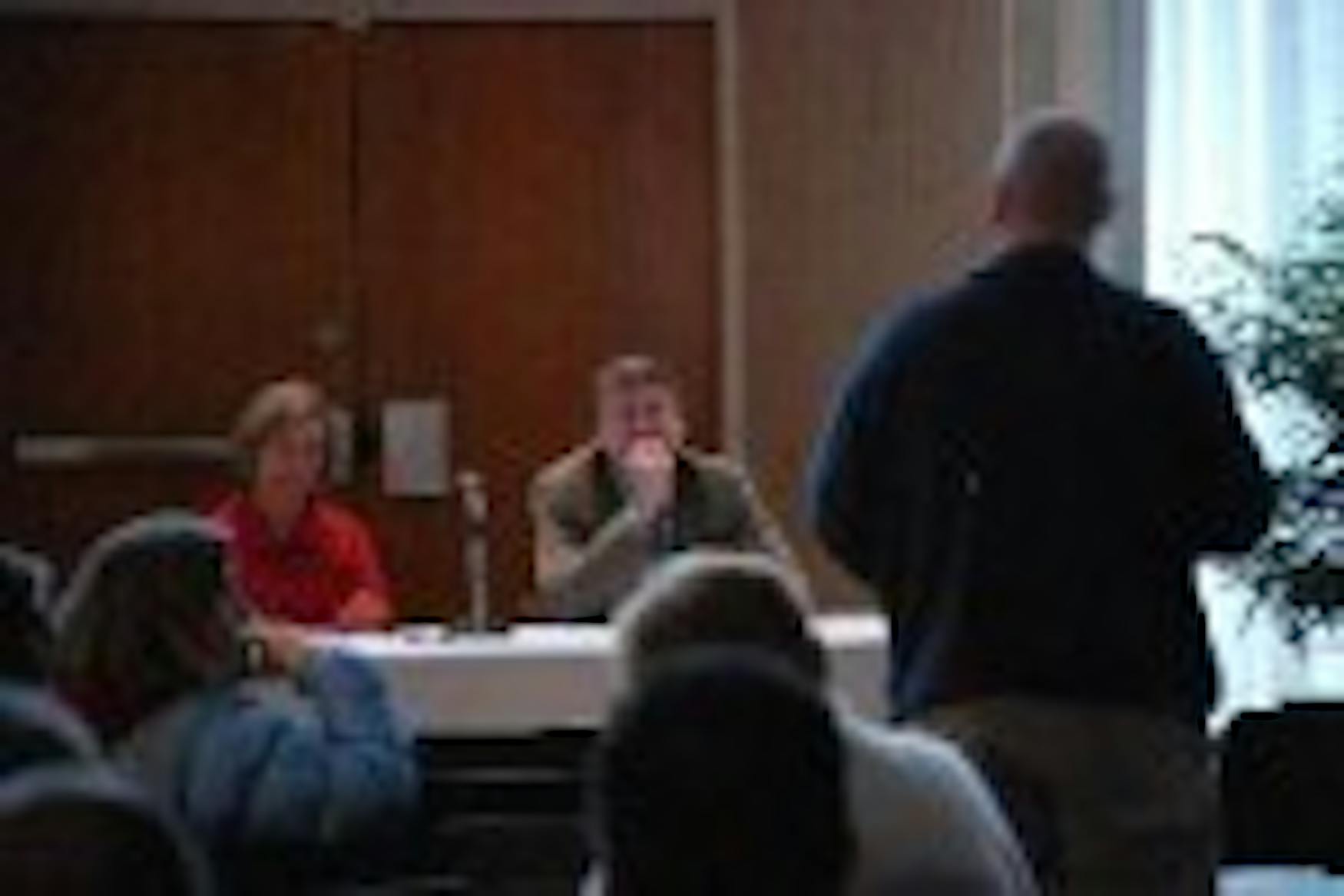Forums held to discuss budget
Members of the Brandeis faculty and staff took advantage of open forums with Executive Vice President and Chief Operating Officer Jeff Apfel and Provost Marty Krauss held last Tuesday and Thursday to offer suggestions for ways the University can increase revenue, reduce expenses, increase the efficiency of its work routines and enhance its image. Krauss is the chair of the Bold Ideas Group, a committee of faculty and staff investigating academic initiatives that the University could adopt to yield a steady return of at least $2 million. Apfel is chair of the Administrative Resource Review Committee, which is examining University staffing levels and administrative processes.
Apfel said after the meeting that senior administrators would evaluate the ideas in upcoming meetings. He said he was open to having a similar forum with students.
Faculty and staff offered a range of suggestions from "turning off the lights" to having four-day workweeks at the two open forums.
Some participants used the forum to call attention to longstanding issues, such as the closure of the swimming pool: "Prospective students will wonder what's going on," swimming and diving coach Jim Zotz said. "What kind of facility keeps a pool closed for a year and a half? Every elite school we want to compare ourselves to has a pool."
"We should target buildings really in distress and renovate them to avoid having to throw money at them to keep them in shape," University archivist Karen Abramson said. She suggested that the University monetize promotional material presenting the University's history. She added that the University could also charge for access to University networking-for example, charging a small fee for an iPhone application for alumni.
Director of Global Communications Charles Radin suggested that the University restart an effort to establish a shuttle service to the Riverside subway station. "If we could do that, . then you could eliminate [the Boston/Cambridge Shuttle Service] downtown," he said.
Radin added that "a lot of units on the campus buy supplies separately. . I think that can't be the most the efficient thing, every department and center ordering separately, even if they use corporate accounts," Radin said.
Apfel agreed with Radin, stating that "when efficiency work is being done in higher education, probably the number-one area is procurement." Apfel said centralized procurement could sometimes be hard to implement because different departments prefer different types of supplies.
The University had been exploring the idea of centralized cooperation in this area with Boston consortium institutions, Apfel said. "We may be going down that road over the course of the year."
Lisa Andersen of the Schneider Institute for Health Policy at the Heller School for Social Policy and Management stated that savings could be possible in landscaping. "There are a lot of contractors doing plantings [and] replacements. . If we shifted to perennials, we might reduce our landscaping budget."
Chris Roppola '99, also an LTS staff member, said that it was important to many alumni that there be an alma mater for them to return to in the future. "There's a lot of debate that we can't shrink out academic offerings if we have 47 academic programs. . But if we only ever have $150 million, ... then maybe that's too many," he said.
Peter de Andrade from Human Resources noted that his department had received four-day workweeks for a period over the summer with a choice of Monday or Friday to take those days off. He suggested that if staff all took off the same day there could be savings from building energy.
Ethan Sewall, an English as a Second Language faculty member suggested the University become a testing center for the Test Of English as a Foreign Language. He said such a setup for the TOEFL or other tests would cost very little money but did pay some income.
Some professors also offered suggestions for enhancing the University's image.
Prof. Mary Baine Campbell (ENG) suggested that the University could serve as a "center for literary and cultural studies," particularly since many residents of surrounding areas have "a hard time getting into Harvard Square." The University could take advantage of visiting professors traveling through Brandeis for this purpose and become a "resource for the educated people in the suburbs."
A French professor suggested greater engagement to benefit the victims of the earthquake in Haiti. "Why don't we hook up with artists in Haiti, figure out how to raise money and help their work," the professor proposed.
The professor suggested that the University should take greater initiative to help student groups organizing help for Haiti, with, for example, a Justice Brandeis Semester on the country. Representatives of the Haitian Waltham community could visit English and French classes, the professor added.
- Alana Abramson contributed
reporting.




Please note All comments are eligible for publication in The Justice.